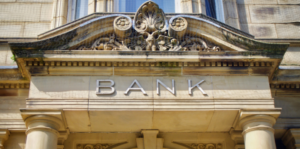Like all presidential candidates, President Joe Biden campaigned on big promises. A major issue over the last several years has been the worsening student loan debt crisis, and Biden spoke regularly of providing relief through forgiveness.
How much forgiveness he can provide and who qualifies, though, are variables that are still up in the air. Here’s what we know about Joe Biden’s current plans for student loan forgiveness.
Joe Biden on student loans: What you need to know about student loan forgiveness in 2021
American college graduates and their parents owe $1.6 trillion in student loan debt, with an average balance of roughly $30,000.
While many different numbers have been thrown around, the most likely approach, according to many experts, is that the new president will forgive $10,000 in student loans in the form of covid relief.
Biden has yet to confirm whether he’ll provide this relief through executive action or through cooperation with members of Congress.
Regardless of how it happens, the $10,000 plan is expected to extend to all federal student loan borrowers. On top of that, Biden has also talked about forgiving full balances for other students who are eligible based in need and other qualifications.
Who would qualify for student loan forgiveness in 2021?
Members of the Democrat party have suggested all sorts of approaches to solving the student loan debt crisis.
Joe Biden’s most likely plan is to forgive all student loans for those who attended public colleges or historically Black colleges and universities and earn less than $125,000 per year.
It’s unclear whether the income maximum refers to gross income, adjusted gross income, or modified adjusted gross income, all of which are relevant when Americans file taxes.
Of course, this excludes borrowers who attended private schools, which enroll millions of students. Also, because the federal government’s purview extends only to federal student loans, private student loan borrowers won’t qualify.
What if you aren’t eligible for student loan forgiveness?
Student loan forgiveness in 2021 can provide significant relief to struggling borrowers, even if it’s just the initial $10,000 plan for federal loans.
But if you have student loans that don’t qualify for that benefit, or you still have remaining debt and aren’t eligible for the broader student loan forgiveness plan, you may be wondering what to do next.
Your next steps will depend on the type of student loans you have and your credit and financial situation.
If you have federal student loans, for instance, you can apply to get on an income-driven repayment plan. These plans reduce your monthly payment to a small percentage of your discretionary income, providing immediate relief.
You may also qualify to enter into a deferment or forbearance agreement, which will pause your monthly payments for a set period.
Another option that’s available to federal student loan borrowers (and one of the only ones if you have private student loans) is to refinance your debt with a private lender.
And if you only qualify for $10k in forgiveness under Biden – but still have a large remaining college debt balance – you can refinance a portion of your federal loans to a lower rate and leave the remainder to be discharged.
How to refinance your student loan debt
With the student loan plan from Joe Biden, not everyone will have the chance to get forgiveness. Among those that do, they may still have some debt left over after $10k in forgiveness is confirmed.
If you’re thinking of refinancing your student loans, start by shopping around and comparing different loan offers. Private student loan companies typically allow you to get prequalified with just a soft credit check, which gives you the chance to view loan offers without committing to a lender.
Purefy’s Compare Rates tool can help with this process by providing offers from multiple lenders, which you can view side by side. The more lenders you compare, the easier it will be to get the best terms available.
As you shop around, be careful to look at more than just the interest rates, though. Some lenders may offer variable interest rates that start off low but can increase over time as market rates fluctuate. If you’re planning to take several years to pay off your debt, a fixed interest rate may be the better choice.
You’ll also want to decide how long you want to take to pay off the debt. For example, you can opt for a shorter repayment term to pay off your loans faster, but you’ll end up with higher monthly payments, which may not be affordable for some.
On the flip side, you may choose a longer repayment term to make your payment less of a burden on your budget. But over time, you’ll end up paying more in interest and remain in debt longer.
Finally, before you apply to refinance your student loans, make sure you don’t need access to income-driven repayment plans and other federal student loan forgiveness programs. If you move your debt to a private lender, it’ll no longer be eligible for federal benefits.
The bottom line
With plans from Joe Biden on student loans, it’s possible that millions of borrowers will receive at least $10,000 in forgiveness, and possibly even more.
But not everyone is eligible, and even if you qualify for one step in the president-elect’s plan, you may not be able to take advantage of the second.
If you anticipate still having student loans after Biden’s plan goes into effect — and remember, that’s not a guarantee — consider taking advantage of historically low refinance rates to save money as you pay down your debt.
You may also be able to enjoy the flexibility that comes with student loan refinancing, which can allow you to shorten or extend your term. Whatever you do, it’s important to consider ways you can tackle your student loan debt in the most effective way possible.
















